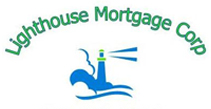Reverse Mortgage Loan on Long Island

The media continues to provide constant coverage and advertisements for the concept of reverse mortgages, which are also termed home equity conversion mortgages (Home Equity Conversion Mortgage (HECM) loans). However, many fail to fully understand what a reverse mortgage is, who is eligible, and the benefits of it. In order to make the best decision for the future, homeowners need to have a thorough understanding of reverse mortgages on Long Island.
What Is a Reverse Mortgage
Seniors over the age of 62 face many challenges as income from work decreases and the cost of living increases. A reverse mortgage allows homeowners to borrow money in exchange for the equity rights of the home. In the majority of cases, the loan does not need to be repaid until the last borrower leaves the house permanently.
When the last borrower leaves the property, the Long Island estate has approximately 6 months to repay the loan by either selling or refinancing the property, which one of our Mortgage Brokers in Long Island can help you with. Furthermore, the Federal Housing Authority (FHA) insures reverse mortgages in order to provide a safety net if the home sells for less than what is owed on the balance of the note. Borrowers remain responsible for paying property taxes and homeowner’s insurance, must occupy home as their primary residence, pay for ongoing maintenance, and otherwise comply with loan terms; otherwise the loan becomes due and payable.
Reverse Mortgage Eligibility
Before deciding to take out a reverse mortgage loan, you must ensure that your Long Island property meets some specific eligibility criteria for houses, mobile homes, and condos or town homes that pass inspection by the Federal Housing Authority.
All of the homeowners must be at least 62 years old, and they must own the home free and clear of any liens. However, if the revenue from the reverse mortgage at closing will pay off the debt, you are eligible to take out a reverse mortgage loan. Once the home is sold, the proceeds from the sale will first go to repaying the reverse mortgage balance in full. Once all liens on the home and any fees associated with the sale of the home are paid off, any remaining proceeds after that will belong to you or your heirs. Mobile homes must have been built within the last 30 years, sit on a permanent foundation, and pass inspection by the Federal Housing Authority.
Advantages of a Reverse Mortgage
Unlike taking out a second loan in order to help with income as you age, a reverse mortgage gives you several benefits. Repayment is deferred until the borrower dies, sells the home, moves out of the house, or defaults on other obligations such as insurance or taxes. If you leave the home, your family members have the option of repaying the reverse mortgage loan or allowing the bank to have the property. You pay no interest or payments towards a principle balance when you have a reverse mortgage. In addition, the Federal Housing Authority (FHA) dictates how much you can receive through a reverse mortgage depending on current interest rates, the age of the youngest homeowner, and the appraised value of the home.
If you or a loved one has been considering obtaining a reverse mortgage loan, contact one of our Long Island company today. We can help you navigate the terrain in applying for a reverse mortgage. We are the reverse mortgage experts at our mortgage company on Long Island are ready to help you at a moments notice. Contact Lighthouse today! 631-382-7310
These materials are not from HUD or FHA and were not approved by HUD or a government agency.
